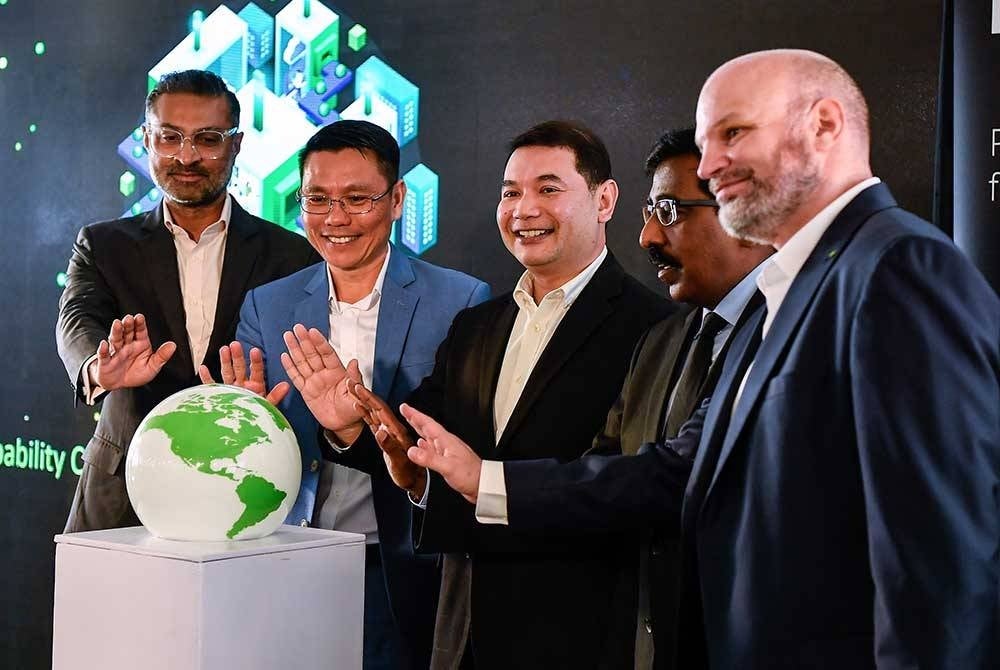High economic growth must be maintained to address skills gap - Rafizi
07 Jun 2023 02:08pm

Economy Minister Rafizi Ramli (centre) and Deloitte Malaysia Chief Executive Officer Yee Wing Peng (second, left) pose for a group photo at the launch of the Deloitte SEA Kuala Lumpur Regional Capability Center Office today - FILEPIC
He said his ministry "never shifted its attention from the importance of aggregate demand, business creation, innovation, and selecting high growth, high value industries to invest in.”
"Whatever version of the future of work looks like, it would only be an optimistic one if there is an
engine of growth that creates high-skilled jobs.
"Economic growth is, therefore, a hygiene factor- a fundamental necessity - for this ministry," the minister said in key remarks at the launch of the Deloitte South East Asia (SEA) Regional Capability Centre here today.
He said that "retraining and workforce development must also be increased to a scale never seen before.”
Citing the latest estimates by the World Bank on the big talent gap, Rafizi noted that "for us to match developed OECD countries for skills, we need to create another two million high-skilled jobs.”
"This is a global challenge many countries are still grappling with,” he added. "In the next few months, we will be rolling out a series of initiatives to ease access to upskilling programmes at a large scale so that we tilt the supply-demand imbalance."
On top of that, the minister said creating a supportive environment for labour mobility is also needed as it would not be sufficient to train without also figuring out how to place the right talents in the right jobs.
Rafizi said talent planning must be active and deliberate, and Malaysia must adapt and challenge assumptions about what makes a good worker.
"Taking a skills-first approach, and enabling our talents to serve the region would address the structural
problems of our economy as we move up the value chain," he said. - BERNAMA














